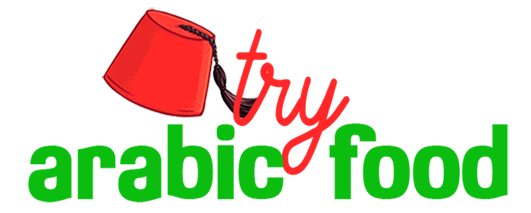Moroccan Herbal Coffee, also known as Qahwa Maachba, is a centuries-old beverage that blends ground coffee with a variety of fragrant medicinal herbs. Popular across southern Morocco and the Saharan regions, this aromatic drink is valued not only for its bold flavor but also for its remarkable health benefits. In this in-depth article, we’ll explore the origins, health advantages, cultural significance, and preparation of Moroccan herbal coffee, a unique spiced coffee that warms the soul and heals the body.
Origins and Cultural Significance
The tradition of herbal coffee in Morocco dates back centuries, especially among Amazigh (Berber) and Sahrawi communities. In regions like Souss, Agadir, and Laâyoune, coffee is not just a beverage—it’s a healing ritual. Moroccan herbal coffee reflects a deep respect for natural medicine, passed down through generations. Often brewed in clay pots and served during breakfast or cold desert nights, this drink is believed to balance the body’s energies and treat common ailments like bloating, colds, and fatigue.
Common Herbs Used in Moroccan Herbal Coffee
The strength of Qahwa Maachba lies in its blend of medicinal herbs. Each herb is chosen for its unique aroma and healing properties. Here are the most popular ones:
- Anise (nafaâ): Aids digestion and reduces bloating.
- Clove (qrunfil): Antiseptic, warms the body, fights infection.
- Cinnamon (qarfa): Balances blood sugar and enhances flavor.
- Ginger (skinjbir): Stimulates circulation, eases nausea.
- Lavender (khzama): Calms the nervous system and reduces stress.
- Fennel (shamar): Helps digestion and hormonal balance.
- Sage (salmia): Anti-inflammatory and cognitive support.
- Wormwood (shiba): Detoxifying and anti-parasitic (used sparingly).
Top Health Benefits of Moroccan Herbal Coffee
This coffee isn't just flavorful—it’s a daily dose of natural wellness. Here are its main benefits:
- Boosts Immunity: Thanks to antioxidants and anti-inflammatory herbs.
- Improves Digestion: Fennel, anise, and ginger aid in smoother digestion.
- Enhances Mental Focus: Coffee and sage support cognitive performance.
- Relieves Cold Symptoms: Clove, cinnamon, and ginger provide warmth and relieve congestion.
- Balances Hormones: Fennel and sage support women's hormonal health.
- Improves Mood: Lavender and ginger elevate energy and reduce anxiety.
- Detoxifies the Body: Wormwood and ginger aid liver function and cleanse toxins.
Ingredients You Need
To make Moroccan Herbal Coffee at home, you’ll need:
- 2 tablespoons ground coffee (medium roast, preferably Arabic-style)
- 1 teaspoon dried anise seeds
- 1 cinnamon stick
- 2–3 whole cloves
- 1 slice fresh or dried ginger
- 1 teaspoon dried lavender (optional)
- 1/2 teaspoon fennel seeds
- Pinch of sage or wormwood (optional and strong in flavor)
- 2.5 cups water
- Sugar or honey (optional)
- Milk (optional, for a creamy version)
How to Make Moroccan Herbal Coffee – Step-by-Step
1. Prepare the Herbs
Measure and lightly crush the herbs (except powdered ones) using a mortar and pestle to release the aromas.
2. Brew the Coffee Base
In a small pot or Moroccan clay teapot, combine the ground coffee with water. Bring to a gentle simmer over low heat.
3. Add the Herbs
Add all the herbs and let them simmer with the coffee for about 5–7 minutes, stirring occasionally. You may cover the pot to concentrate the flavors.
4. Sweeten and Serve
Add sugar or honey if desired. You can also add a splash of warm milk for a richer texture. Strain the mixture into a cup and serve hot.
Regional Variations
Depending on the region and family tradition, Moroccan herbal coffee may vary in ingredients:
- Southern Morocco: Includes sage, lavender, and more wormwood.
- Urban areas: Less bitter, more balanced herbs like cinnamon and fennel.
- Saharan households: Stronger, spicier with more clove and ginger, sometimes without sweeteners.
Serving Tips and Storage
- Serve with Moroccan dates or almond cookies for a traditional touch.
- Best enjoyed warm, especially in the early morning or late evening.
- You can store the brewed mix in the fridge for 1–2 days and reheat gently before serving.
- Always use fresh herbs when possible for the best aroma and health effects.
Frequently Asked Questions
Can I drink this herbal coffee daily?
Yes, it is safe and even beneficial to drink daily, especially if you moderate the stronger herbs like wormwood.
Does this coffee contain caffeine?
Yes, since it includes ground coffee. However, the amount can be adjusted by adding more herbs and less coffee.
Can I make it without sugar?
Absolutely. Most traditional recipes are sugar-free or lightly sweetened with honey.
Is it safe during pregnancy?
Some herbs like wormwood or excessive sage should be avoided during pregnancy. Always consult a healthcare provider first.
Conclusion
Moroccan Herbal Coffee (Qahwa Maachba) is more than just a beverage—it’s a time-honored tradition and natural remedy deeply woven into the cultural fabric of Morocco. Whether you're seeking digestive relief, a mental boost, or simply a unique and comforting hot drink, this herbal coffee offers a powerful alternative to commercial drinks. Brew it with care, share it with loved ones, and experience the ancient magic of herbs in every sip.
Perfect for cold mornings, relaxing evenings, or wellness routines, Moroccan herbal coffee is a true gift from nature — both flavorful and functional.



